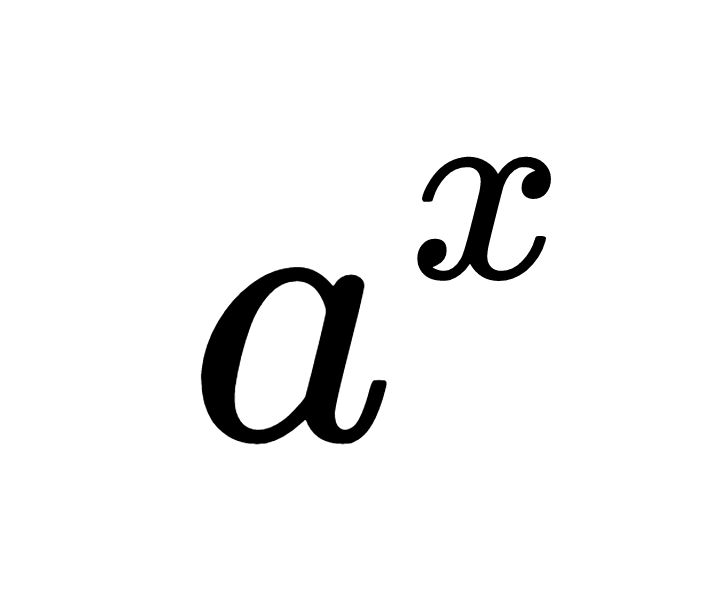Exponent Calculator
Enter the base and exponent to calculate the result below.
ax = ?
Results:
On this page:
How to Calculate an Exponent
An exponent is the number of times the base value should be multiplied by itself. To calculate a number raised to an exponent, multiply the number by itself for each value of the exponent.
So 52 is the same as 5 × 5 and 53 is the same as 5 × 5 × 5.
Calculating an exponent is also sometimes referred to as raising a number to the nth power.
For example, calculate the result of 84.
84 = 8 × 8 × 8 × 8
84 = 4,096
Thus, 84, or 8 to the 4th power, is equal to 8 times 8 times 8 times 8, which is equal to 4,096.
How to Calculate a Negative Exponent
What do you do if the exponent is negative? For a negative exponent rather than multiplying the number by itself the number of times for the exponent, you divide the number by itself, starting with 1.
So 5-2 is the same as 1 ÷ 5 ÷ 5 and 5-3 is the same as 1 ÷5 ÷ 5 ÷ 5.
Negative exponents are often expressed as 1 over the base with a positive exponent.
5-2 = 1 / 52
For example, calculate the result of 84.
8-4 = 1 / 84
8-4 = 1 / 8 × 8 × 8 × 8
8-4 = 1 / 4,096
8-4 = 0.000244140625
Thus, 8-4 is equal to 0.000244140625.
Special Exponent Rules
There are some special rules with exponents that are important to remember.
When the exponent is 1, the result of raising a base to the exponent will always be equal to the base.
a1 = a
When the exponent is 0, the result of raising a base to the exponent will always be equal to 1.
a0 = 1
When the exponent is 2 you can also say that the base value is squared. When the exponent is 3 you can say that the base value is cubed.
The calculator above will handle these special cases along with negative exponents to solve the answer.
Exponent Table
| Powers of Two | Powers of Three | Powers of Four | Powers of Five |
|---|---|---|---|
| 20 = 1 | 30 = 1 | 40 = 1 | 50 = 1 |
| 21 = 2 | 31 = 3 | 41 = 4 | 51 = 5 |
| 22 = 4 | 32 = 9 | 42 = 16 | 52 = 25 |
| 23 = 8 | 33 = 27 | 43 = 64 | 53 = 125 |
| 24 = 16 | 34 = 81 | 44 = 256 | 54 = 625 |
| 25 = 32 | 35 = 243 | 45 = 1024 | 55 = 3125 |
| 26 = 64 | 36 = 729 | 46 = 4096 | 56 = 15625 |
| 27 = 128 | 37 = 2187 | 47 = 16384 | 57 = 78125 |
| 28 = 256 | 38 = 6561 | 48 = 65536 | 58 = 390625 |
| 29 = 512 | 39 = 19683 | 49 = 262144 | 59 = 1953125 |
| 210 = 1024 | 310 = 59049 | 410 = 1048576 | 510 = 9765625 |


